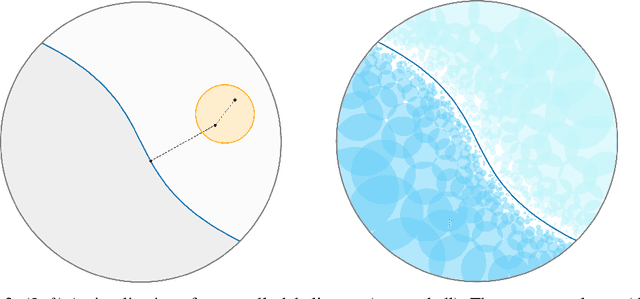Online Consistency of the Nearest Neighbor Rule
Paper and Code
Oct 31, 2024


In the realizable online setting, a learner is tasked with making predictions for a stream of instances, where the correct answer is revealed after each prediction. A learning rule is online consistent if its mistake rate eventually vanishes. The nearest neighbor rule (Fix and Hodges, 1951) is a fundamental prediction strategy, but it is only known to be consistent under strong statistical or geometric assumptions: the instances come i.i.d. or the label classes are well-separated. We prove online consistency for all measurable functions in doubling metric spaces under the mild assumption that the instances are generated by a process that is uniformly absolutely continuous with respect to a finite, upper doubling measure.
 Add to Chrome
Add to Chrome Add to Firefox
Add to Firefox Add to Edge
Add to Edge